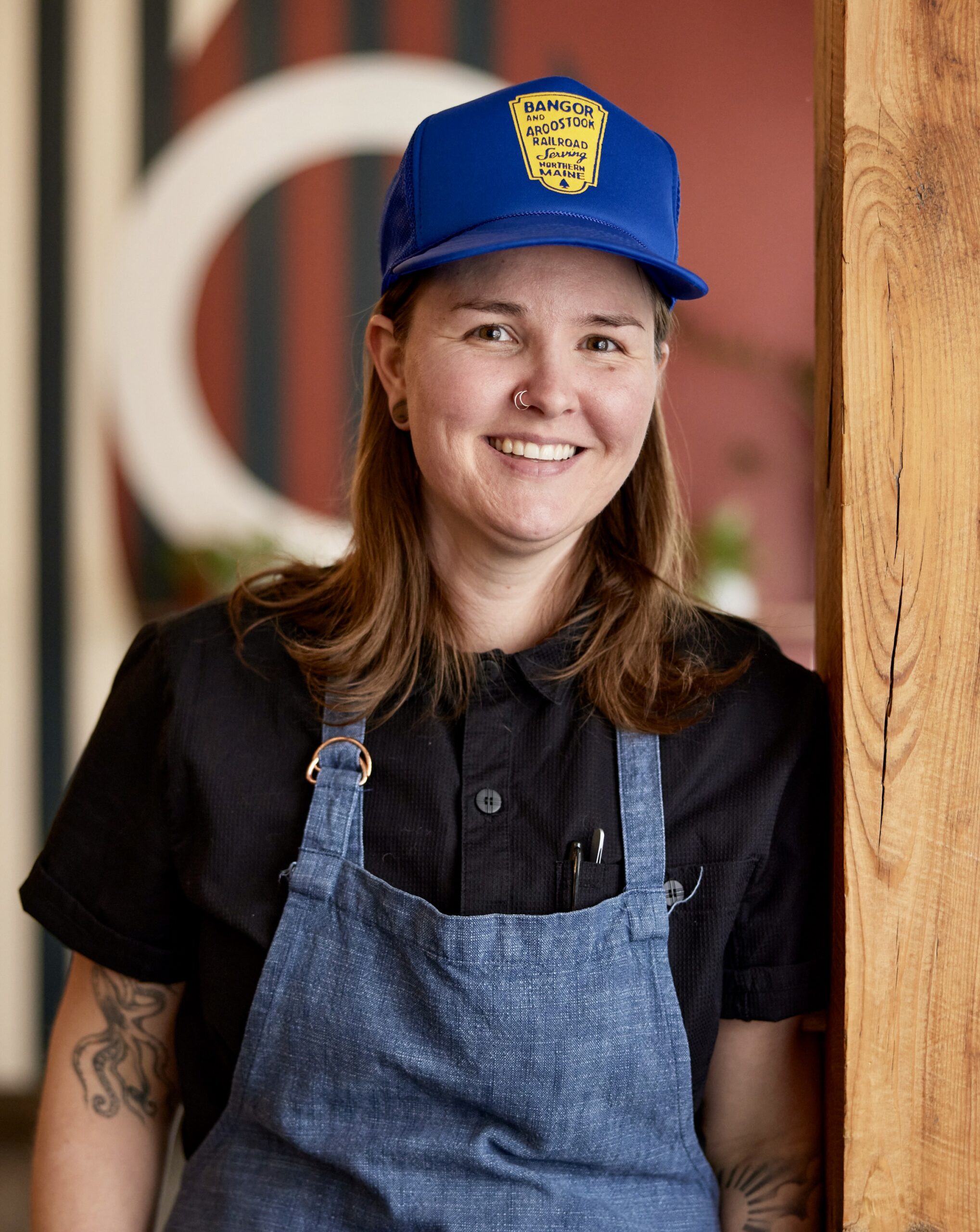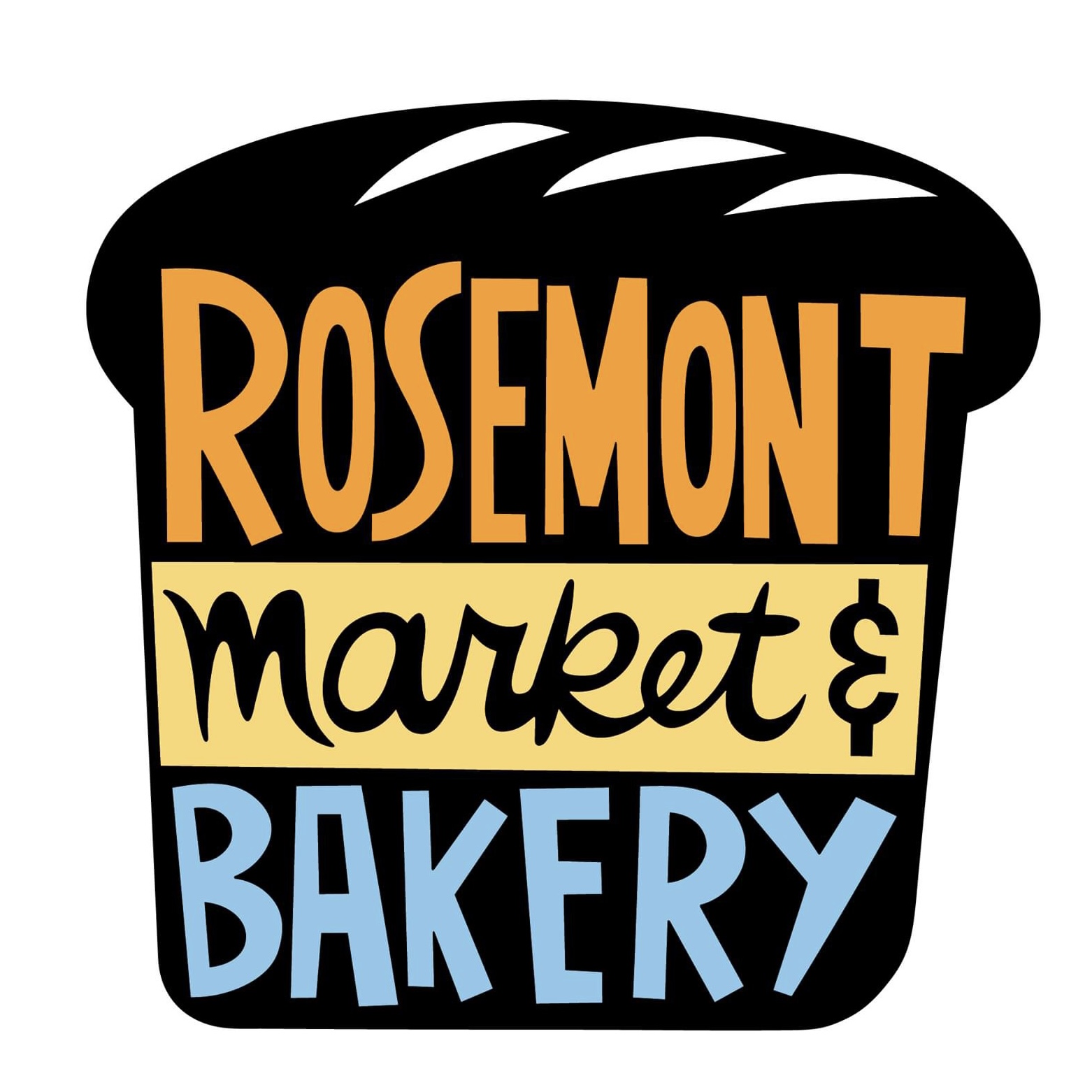Welcome to the June 2023 edition of My Kitchen, Their Table, an interview series with the chefs and culinary professionals who work hard to satisfy our small city’s big appetite. This month we’re featuring an interview with Mimi Weissenborn the creative director and executive chef of Sur Lie and Gather. Photos and videos will continue to expand on the story on instagram, so stay tuned.
 In the 17th edition of My Kitchen Their Table, we celebrate a “shef” who climbed her way to the top. In an industry dominated by men — only 26.9% of chefs and head cooks in the U.S. are women — she is a force to reckon with. She participated in the James Beard Foundation’s International Women’s Day Dinner in 2020, launched a women’s dinner series in collaboration with Top Chef Adrienne Cheatham, and Vinateria received a Michelin Star recommendation during her stint at the celebrated women-led Spanish Italian restaurant in New York City. Today, she is at the helm of Sur Lie in Portland and Gather in Yarmouth. She is Mimi Weissenborn.
In the 17th edition of My Kitchen Their Table, we celebrate a “shef” who climbed her way to the top. In an industry dominated by men — only 26.9% of chefs and head cooks in the U.S. are women — she is a force to reckon with. She participated in the James Beard Foundation’s International Women’s Day Dinner in 2020, launched a women’s dinner series in collaboration with Top Chef Adrienne Cheatham, and Vinateria received a Michelin Star recommendation during her stint at the celebrated women-led Spanish Italian restaurant in New York City. Today, she is at the helm of Sur Lie in Portland and Gather in Yarmouth. She is Mimi Weissenborn.
Like many chefs, Weissenborn was a teenager when she landed her first restaurant gig, tossing pizza at Bellisarios in her hometown of Frederick, Maryland. After graduating from L’Academie de Cuisine culinary school in 2009, she discovered her cooking style — elevated American fare with an emphasis on local ingredients. Looking to advance her career further, Weissenborn moved to the Big Apple, and it was Superfine in Brooklyn that gave her the creative freedom she craved. “Normally, you show up, and you’re told what to do,” she says, but at Superfine, Weissenborn wrote the daily menu. After three years, she made her next big move, becoming the creative director and eventually executive chef at Vinateria.
Weissenborn left the city shortly after the COVID-19 shut down and moved to New England with her partner, Rebecca Elias. In December 2021, she teamed up with Krista Cole the owner of Sur Lie. Cole launched Sur Lie in 2014 and acquired Gather in 2022, and she received a James Beard Awards semi-finalist nomination for Outstanding Restaurateur in 2023. Cole needed a chef to bring cohesion between the two brands and one that shared her commitment to supporting local farms and fisheries. It was just the kind of ethos Weissenborn craved.
The partnership is working wonders and Sur Lie earned its first-ever Beard Foundation semi-finalist nomination for Outstanding Hospitality this year. The ever-changing menu begs you to return at least once every couple of months to taste Weissenborn’s imaginative use of Maine’s best ingredients before they’re gone. You won’t want to miss out on one of her all-time favorite Spring dishes made with locally foraged wild ramps. At Gather, she’s reinvented classic comfort food with a seasonal twist, giving you a good reason to venture beyond Portland’s stellar food scene.
Continue reading to learn what dishes she loves most at Gather and Sur Lie, how we can better support women in the restaurant industry, and where she’s dining in Portland and beyond.
THE INTERVIEW
AR: What are your thoughts on the state of the industry and how it’s changed?
MW: The industry has certainly changed post-pandemic, but not in a bad way. Workers are demanding better pay, better work-life balance, and earned time off, as they should. I think the hardest part is the way that restaurants operate financially is still an old model, and we are living in this new world. There’s been a huge learning curve for most, and we still have a lot to figure out, but it’s an exciting time to be part of shaping the future of this industry.
AR: What kind of challenges do women face in the restaurant industry?
MW: Inequality is one of them. Women face the gender pay gap, workplace discrimination, and sexual harassment. More than that, there are real issues women face when their career is in restaurants, and they decide to raise a family — like a lack of maternity leave and daycare during restaurant hours and unpredictable wages. I could go on and on.
AR: How can we better support women in the restaurant industry?
MW: Speak up. Nothing will ever change if it remains the same. Be the change. Advocate for yourself and your neighbor in humanity, and it will get better.
AR: Who inspires you?
MW: Adrienne Cheatham. I met Adrienne while doing the women’s dinner series in New York. I was excited to work with her because she had just been on Top Chef. She became a close friend and a mentor, still to this day, even though I’m no longer in Harlem. Something I always took away from her is that you must surround yourself with people doing stuff you want to do, and maybe that feels uncomfortable, but otherwise, you won’t shoot high enough.
AR: What’s the hospitality industry like in Portland?
MW: The hospitality industry here is amazing. The network of people within, and not just restaurant-to-restaurant and knowing the community, but farmer-to-restaurant and just making those connections. That truly has been the experience of a lifetime for me — really just getting to know the farmers and having them come in and plan menus. I think that’s something as a chef that I’ve always wanted and wanted to take to the next level. Overall, as a community, everyone really looks out for each other and is truly positive.
AR: What is your favorite dish at Gather?
MW: Jeez, that’s a hard question. I would have to say one of our share plates — the chicken & waffles with lavender brined chicken, potato waffle, and honey. First, who doesn’t love chicken and waffles? Also, it represents our desire to take Gather’s neighborhood feel and elevate the dishes. It’s a great example of creating a fun rendition of something familiar.
AR: What is your favorite dish at Sur Lie?
MW: Last Spring, we crafted a ricotta gnocchi dish with wild ramp pesto, preserved Meyer lemon, and Lakin’s George Morgan cheese shaved on top. It was not only incredibly popular but — and I say this not lightly because, as a chef, we are always the most critical — that is one of my best dishes. The ramps were from a gentleman named John, who stopped by the restaurant with a bag he had just foraged that day. He kept coming back until ramp season was over.
AR: Do you expect the gnocchi and ramp pesto dish to return this Spring?
MW: You’ll have to stop in and find out!
AR: What are some of your favorite dishes at other restaurants in Portland?
MW: The spicy noodles with minced pork from Sichuan Kitchen is one of those crave-worthy dishes, and the fried wings at Honey Paw. They’re sweet, spicy, savory, and fried to perfection. The spicy beef salad at Central Provisions is a flavor bomb. Everything at Isa is fresh and local, but the bolognese is especially notable.
AR: What about outside of Portland? Where do you recommend dining?
MW: Chef Christian at The Garrison is doing awesome stuff. I had his lobster chowder with red curry and mussels with ham broth. Earth at Hidden Pond in Kennebunkport was great. Everything was perfect; the service was excellent, and the ambiance was stunning.
This interview has been edited and condensed for clarity.
Previous editions of My Kitchen Their Table have featured Courtney Loreg, Chad Conley Atsuko Fujimoto, Matt Ginn, Jordan Rubin, Cara Stadler, Thomas Takashi Cooke, Ilma Lopez, Bowman Brown, Brian Catapang, Kelly Nelson, Lee Farrington & Bryna Gootkind, Jake and Raquel Stevens, Tina Cromwell, Nathaniel Meiklejohn, and Evan Atwell.
The My Kitchen Their Table series is brought to life by food writer Angela Andre Roberts and photographer Zack Bowen, and the generous sponsorship by Evergreen Credit Union and The Boulos Company.

